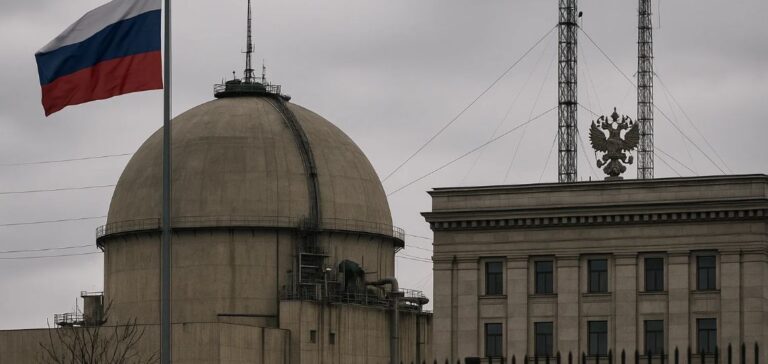The Russian Federation reaffirmed on 16 April its readiness to play a constructive role in efforts to resolve ongoing tensions surrounding Iran’s nuclear programme. This statement comes just days before renewed discussions between Iran and the United States, two countries without diplomatic relations since 1980. Dmitry Peskov, spokesperson for the Kremlin, stated during a press briefing that Moscow is prepared to “do everything within its power” to achieve a political and diplomatic solution.
A diplomatic meeting scheduled in Moscow
Iran’s Minister of Foreign Affairs, Abbas Araghchi, is expected in the Russian capital at the end of the week, according to Iranian authorities. This visit precedes a new round of talks between Iran and the United States, set for Saturday, and aims to lay the groundwork for a potential resumption of negotiations. A previous meeting, held with the mediation of the Sultanate of Oman, allowed both countries to address key issues concerning the future of Iran’s nuclear programme.
Conflicts of interest at the centre of discussions
Western powers, notably the United States, have long suspected Iran of pursuing a covert military objective behind its civilian nuclear programme. Tehran denies these allegations and insists on the peaceful nature of its activities, asserting its sovereign right to develop nuclear energy. Russia, a signatory to the 2015 Vienna agreement, retains a strategic position in the talks, despite the collapse of the initial deal following the U.S. withdrawal in 2018.
Diplomatic stakes around Russia’s role
The 2015 nuclear deal, officially known as the Joint Comprehensive Plan of Action (JCPOA), also included France, the United Kingdom, China, and Germany. Its dismantlement was accelerated by Donald Trump’s unilateral decision to reimpose sanctions on Tehran. Since then, attempts at diplomatic re-engagement have been limited, although recent signals, such as those from Russia, suggest a willingness to restore a multilateral framework.






















